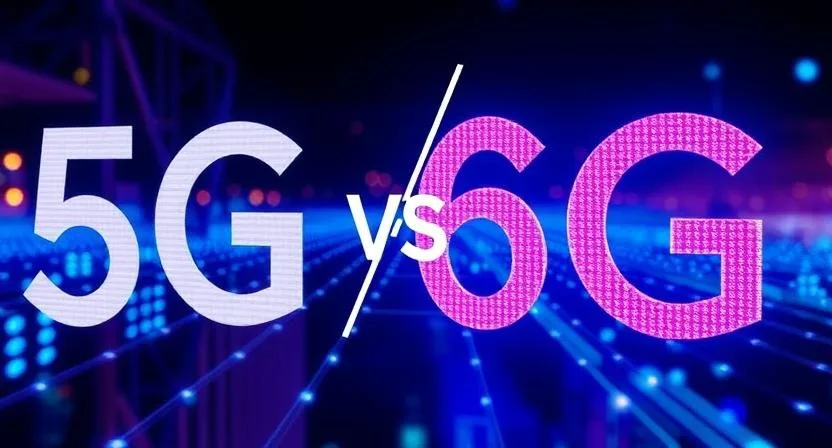As AI systems become common in homes, companies, and communities, their influence on US society will grow. Smarter, more tailored AI-driven solutions for daily chores are increasing how AI will change everyday life. Believe that AI helpers that simplify work and smart houses that anticipate our requirements will improve daily living.
AI is already affecting our lives, and as technology advances, it will soon be everywhere. To make ethical, bias-free decisions, obstacles must be overcome. AI might transform US businesses, healthcare, education, and more. Fairness, responsibility, and openness will remain important as AI evolves.
More than 30% of CIOs globally will prioritize AI investment by 2025, according to Gartner. As a result, the following 2025 trends are expected to shape AI in daily life:
- AI engineering: Using engineering best practices to create, deploy, and operate AI for dependability and efficiency.
- AI democratization: making AI tools and skills more accessible and influential for more individuals, domains, and applications.
- Human-centered, fair, transparent, and responsible AI: The goal is to create intelligent, ethical, and human-centered AI systems.
- AI augmentation: AI systems that boost productivity and decision-making.
- Increasing integration of AI in everyday gadgets, settings, and experiences, altering how AI will affect daily activities, and making AI an integral part of daily life.
As AI systems become common in homes, companies, and communities, how is the impact of AI on society in the USA? AI-driven innovations are providing better, more tailored solutions for daily activities, transforming daily life. Believe that AI in daily life simplifies work and smart houses that anticipate our requirements will improve daily living.
AI technology challenges
Though machine learning, deep learning, and generative AI are advancing, AI platforms and ecosystems provide dangers and obstacles, such as:
- Power and data concentration in a few giant AI platform providers like Google, Amazon, Microsoft, or Alibaba may impede competition and innovation and lock consumers and developers in.
- The lack of standards and governance for AI platforms and ecosystems may cause inconsistencies, conflicts, and vulnerabilities in AI system and service quality, performance, and security.
- Complex and heterogeneous AI platforms and ecosystems may raise technical and organisational problems of building, implementing, and maintaining AI systems and services and demand new skills and capabilities.
These difficulties may be addressed with these AI platforms and ecosystem best practices:
- Open and collaborative AI platform creation and use promote diversity, inclusiveness, and engagement of stakeholders and viewpoints, innovation, and learning.
- Setting shared frameworks and standards for AI platform governance and interoperability ensures that AI systems and services comply with society’s and users’ values, norms, and principles.
- Making sure AI platform management and optimisation plans and policies balance the pros and cons of centralisation and decentralisation, customisation and generalisation, and integration and differentiation.
The merging of AI and other technologies
The convergence and integration of AI and other technologies like cloud computing, 5G, IoT, blockchain, quantum computing, and biotechnology will create new AI innovation and application opportunities in the next five years. Several variables will cause convergence, including:
- The complementary and synergy of AI and other technologies may increase and extend their capabilities, functions, and performance, creating new value and solutions that are not achievable or practicable by each technology alone.
- The availability and accessibility of AI and other technologies may enhance and diversify the sources, types, and quantities of data and information that feed and fuel AI systems and enable the deployment and delivery of AI systems and services to additional devices, platforms, and settings.
- Advancement and dissemination of AI and other technologies may expedite and magnify the development and acceptance of AI systems and services and enable the production and discovery of new information and insights that can drive AI innovation and research.
AI is quickly changing our society, and its influence on the employment sector is hotly debated. Some fear job loss from AI, but others see new potential.
Potential employment loss from AI
Automating rule-based tasks is AI’s speciality. As AI systems improve, manufacturing, data input, transportation (think self-driving trucks), and customer support jobs may be automated. The growth of algorithmic decision-making affects banking, law, and healthcare.
Technology gives instances. AI-powered robots can already do difficult assembly line operations more accurately and efficiently than humans. Paralegals and legal assistants may be affected by machine learning algorithms that evaluate legal documents, discover trends, and write fundamental legal contracts.
AI fosters employment creation
However, AI does not eliminate jobs. AI is creating new jobs that require competence in:
- Machine learning engineers: These experts create and maintain AI models using computer science, statistics, and arithmetic.
- Data scientists: They gather, clean, and analyse massive AI model training data. Data manipulation, statistical analysis, and Python and R programming are necessary.
- AI ethicists: Complex AI raises ethical issues. AI ethicists promote fairness and bias-free AI system development and deployment.
Additionally, AI can improve human talents in different sectors. AI-powered diagnostic technologies can help clinicians diagnose patients more accurately and efficiently. AI-powered design tools can help graphic artists explore new possibilities faster.
The changing skills landscape
AI changes the skills needed by the workforce. Technical skills like data analysis, programming, and cloud computing will grow, but’soft skills’ like critical thinking, problem-solving, creativity, and communication will remain crucial.
Collaboration with AI systems and turning findings into meaningful solutions are essential. As the labour market changes and new technologies are used, adaptability and lifelong learning will become vital.
Establishing AI policies
The growing usage of AI requires clear laws to assure its ethical development and deployment. This deep dive covers key AI policy concerns.
Setting up appropriate AI governance
- Workgroup: Diversify your team with board members, CEOs, legal counsel, AI engineers, ethicists, and maybe external stakeholders. This organisation will promote AI policymaking.
- Stakeholder education: Make sure board members and senior leadership understand AI and its ethics. This aids AI use case and risk assessment.
- Determine policy goals: Define your AI policy goals. To ensure fairness and transparency? Reduce bias? Align AI development with company values? Clear goals guide policymaking.
Assessment of legal and regulatory landscape
- Regulate relevantly: Understand data privacy, security, and algorithmic fairness laws that may apply to your company’s AI use.
- Compliance strategy: Create a plan to follow rules. Data governance, impact evaluations for high-risk AI systems, and AI decision-making documents may be needed.
- Stay informed: AI law and regulation change often. Always check for updates and adjust policy.
Finding AI use cases and dangers
- Mapping AI applications: List all present and prospective AI usage in your company. This might be AI-powered customer care chatbots, recruitment tools, or product suggestions.
- Risk assessment: Assess each AI application for possible harm. Think about prejudice, fairness, privacy, security, and job loss.
- Develop risk mitigation methods. This might include bias detection and mitigation, informed permission for data gathering, or unambiguous human oversight for crucial AI choices.
Being transparent and explainable
- Use XAI approaches wherever feasible to understand how AI systems make judgements. This builds trust and reveals prejudices.
- Clear communication: Inform workers, customers, and the public about AI use. Be upfront about AI’s goals and limits.
- Consider adding a ‘right to explanation’ concept to your policy. Individuals might request explanations for AI-driven choices that affect them.
Human supervision and accountability
- Define roles and responsibilities: Establish who is responsible for AI system development, deployment, and monitoring in the organisation.
- Human oversight: Allow humans to oversee crucial AI applications. AI choices may be reviewed by humans or overridden as required.
- Incident response strategy: Create an AI-related incident response plan. Biassed outputs, data breaches, and unforeseen repercussions may be addressed.
Constant monitoring and improvement
- Regular audits: Check AI systems for fairness, bias, and policy compliance.
- Feedback mechanisms: Allow workers, consumers, and other stakeholders to report AI-related issues.
- Recognise that AI policies evolve. Review and update your policy as AI technology and social expectations change.
Organisations may create strong AI policies that encourage responsible AI development and deployment, trust, transparency, and a future where AI benefits everybody by addressing five essential factors.
Imagine AI-powered future
AI is quickly changing our world, and its effect will only grow.
Imagine AI-powered traffic control systems optimising your morning commute by dynamically altering routes to avoid congestion. AI-personalized smart homes control lighting and temperature and propose activities depending on your tastes and schedule. Personalised healthcare is possible with AI-powered diagnostics that analyse medical data to identify health concerns and offer early therapies.
Revolutionising industries: AI will change many sectors. Intelligent robots that do complicated jobs efficiently and precisely will be widely used in manufacturing. AI-powered design tools will spur creative and sustainable infrastructure construction by architects and engineers. AI-driven precision farming will boost agricultural production and resource usage. The legal and financial industries will use AI for contract analysis, fraud detection, and customised financial planning.
Rising collaborative intelligence: humans and AI will likely operate together smoothly in the future. AI will automate tedious work, allowing people time for creativity, strategy, and socialising. AI development, data science, and human-machine cooperation will create jobs.
Explainable AI: Building confidence in AI requires transparency and explainability. Explainable AI (XAI) will help us understand how AI systems make judgements, reducing prejudice and assuring justice.
The ethical AI challenge: As AI capabilities grow, ethical issues will become more complicated. To guarantee AI systems make impartial conclusions, bias reduction is necessary. AI development and deployment must follow human values and ethics through robust governance systems. To prepare the workforce for automation-related job displacement, reskilling and upskilling are needed.
AI-powered personalized learning platforms will change education. These platforms may modify pace and complexity based on student achievement. AI tutors may help students and answer queries live. This personalized approach may boost learning and make education more accessible.
Why Should You Trust Gizoasis.com ?
With years of expertise studying, evaluating, and stress-testing AI tools and gadgets, we can propose the best AI-powered technology worth your investment. Our broad experience has shown us which AI technologies are useful for daily life and which are simply gimmicks.
We pledge honesty—no exaggerations or fluff. Before making recommendations, we thoroughly investigate, test AI gadgets, and buy them ourselves. As we look at the impact of AI on society in the USA, it’s clear that AI will transform daily life in 2025. From smart homes that adapt to your preferences to AI assistants that streamline tasks, AI in daily life will make everyday activities more efficient and personalized.
AI will revolutionize how we work, live, and interact, changing everything from home automation to healthcare and education. How AI will affect daily activities is becoming clearer, with AI-driven innovations making tasks simpler, faster, and more intuitive. Trust us to help you choose the finest AI solutions that will improve your life and help you navigate the changing landscape of how AI will change everyday life in 2025.







